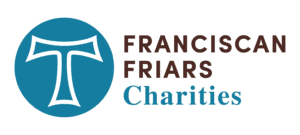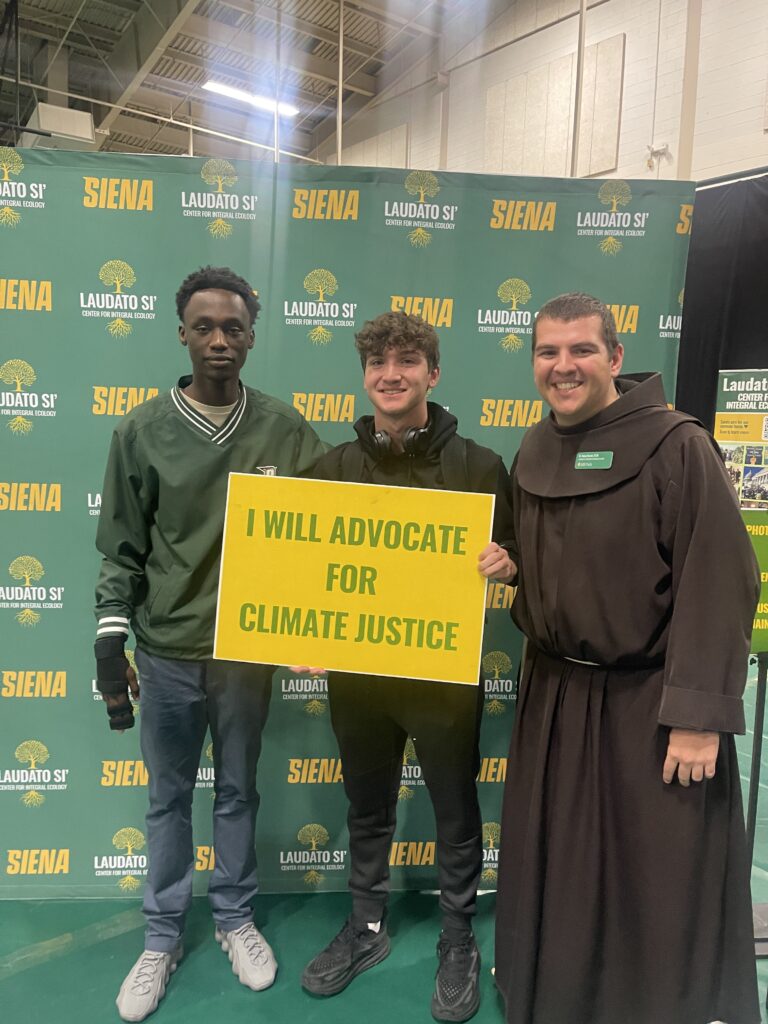
Br. Jimmy Kernan wasn’t out to make a fashion statement, but he wound up making a fashion connection. But again, making connections is what Br. Jimmy does. The day he attended office hours at University of Chicago’s Pritzker School of Molecular Engineering while wearing his habit, most of his fellow students didn’t flinch. Most of them kept their heads down and worked away. Most of them asked the typical curriculum-related questions. Until one succumbed to the intrigue created by the flowing robe in that famous down-to-earth hue.
“Is this a fraternity hazing thing or something?” asked a curious peer. To which Br. Jimmy replied:
“Fraternity? Yes. Hazing? No!”
A conversation started. A curiosity became satisfied. And most importantly, a connection was made. “I saw it as an opportunity to evangelize,” says Br. Jimmy.
“Wearing my habit always presents a good opportunity to encounter people in the world where they are and share our way of life and the joy that comes from it.”
For Br. Jimmy, the world of habit fashion only scratches the surface of making revelatory connections. Today, as a Lecturer in the Department of Physics and Astronomy at Siena College in New York, he begins conversations that go well beyond his wardrobe. He is where dreams gather fuel and altitude with a Franciscan heart and a mind for science.
“Science was always one of my better subjects,” says Br. Jimmy. “I remember being with my mom on the way to a College Fair and she asked, “‘Well, what do you want to major in?’” I said, ‘Physics has been a lot of fun this year!’ And from that moment on, I haven’t turned back. I’ve always enjoyed it and continue to do so.’
These days, Br. Jimmy enjoys the field of materials science, which combines principles from physics, chemistry, and engineering to understand how materials behave, and how to design new materials with specific desired properties. “How can we store energy better?” he asks.
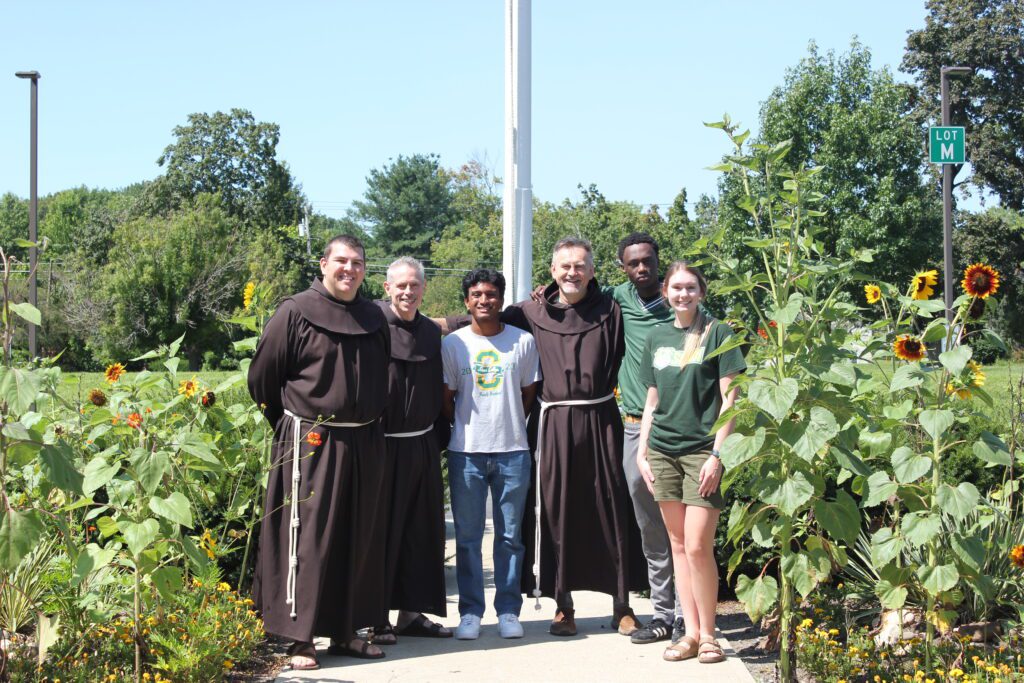
“I do a lot of work around materials for sustainable energy. I particularly look at how do we store hydrogen as a possible fuel. When burned, hydrogen creates water vapor, not harmful greenhouses gases like carbon dioxide.”
Albert Einstein once said, “Science without religion is lame, religion without science is blind.” Br. Jimmy is in an ideal environment in which to hear the next generation’s perspective on the matter. One might think that at a college full of developing, curious, and argumentative minds that the ‘science-religion relationship’ would be a touchy or incendiary subject. Per Br. Jimmy, it’s anything but.
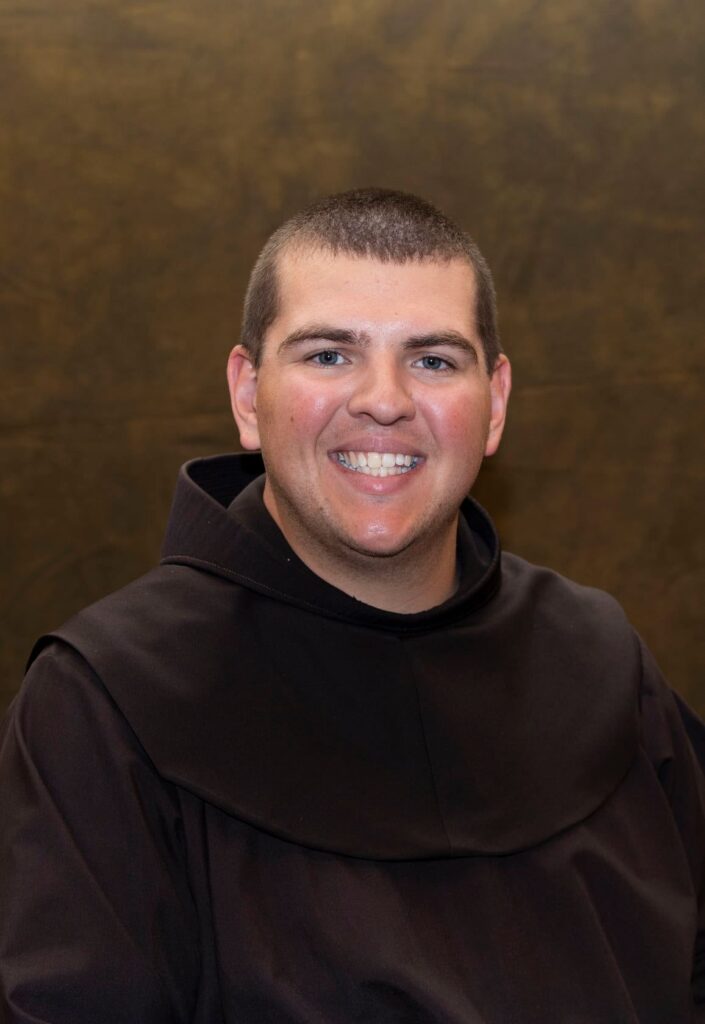
“It’s always asked with a curiosity, never with a match ready to be lit,” assures Br. Jimmy. “And it’s always fun to talk about how Catholics have been influential in a lot of the science that’s taking place. Gregor Mendel was an Augustinian friar known as the ‘father of modern genetics.’ And really, there’s a long tradition of Franciscans in the scientific space. I teach in Roger Bacon Hall. And he’s not, as some might think, a donor to the school. He’s a 13th century Franciscan friar who, 300 years before the scientific method, conducted experiments in controlled settings and realized that it’s important to be able to say things about the world. He did then what we today might consider effective science. The gap between religion and science isn’t as wide as people think.”
The gospel of St. Francis of Assisi is a way of life that emphasizes compassion, care for creation, and solidarity with the poor. Br. Jimmy is living this gospel in many exciting and connective ways.
“St. Francis was keen on our relationship to the world and each other,” he observes. “Part of the idea of this that the brothers should work as they’re able, in areas that showcase their talents. Through science, I can make connections and show my compassion for all of God’s creations, especially those who are suffering because of industrial pollution.”
If Br. Jimmy’s students at Siena College offer any indication of the future, humankind’s relationship with the world is bound for improvement.
“Young people have a particular anxiety about the future of our planet,” imparts Br. Jimmy. “I teach a course in energy and environment that looks at energy systems and environmental impacts. It’s a class for non-science majors and we talk about everything, business, politics, and our day-to-day lives. I really try to empower the students into understanding the idea of where you are and what you’re doing— that we’re all part of this human family. This isn’t just a solution that scientists need to figure out. This is something we all need to be working on and figuring out together.”
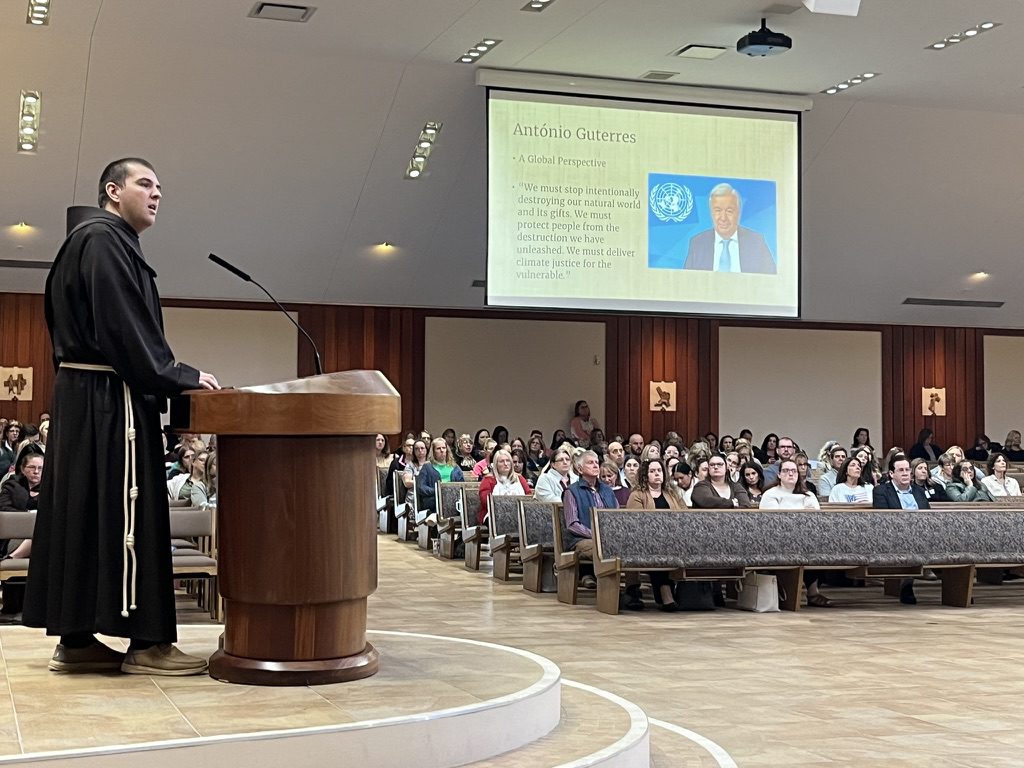
In his role as Assistant Director for Research at Siena’s Laudato Si Center for Integral Ecology, Br. Jimmy sees how proactive students are about improving the state of the world.
The Laudato Si’ Center for Integral Ecology focuses on education, outreach, and advocacy on the issues inspired by Pope Francis’ encyclical, Laudato Si’, which include climate change, pollution, loss of biodiversity, and social inequality.
The Center’s mission:
Laudato Si’ Center for Integral Ecology focuses on campus-wide engagement, social justice, spiritual and academic enrichment, promoting an engaging vision of the common good. The Center is building local, national, and global networks among Franciscans institutions of higher ed, with the local diocese, and with other organizations who share similar values, including diverse faith communities and Catholic and other organizations that promote the spiritual, ethical, scientific, social, and other insights contained in Pope Francis’ encyclical.
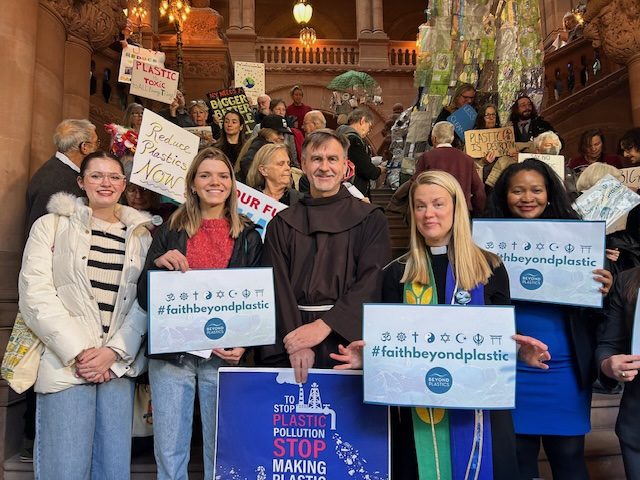
“We have a lot of students who work with us as part of their work study, helping us build social media content and awareness around some of these issues,” offers Br. Jimmy. “Recently, we had some students go to the New York State Capitol building here in New York to advocate for the passing of bills related to plastic pollution. In the fall of 2024, some students went to Washington, D.C. with Franciscan Action Network to learn what it means to go to Capitol Hill and talk to representatives about bills that they want to see passed—a lot of them were related to the climate and climate change. Another we advocated for was a way to address gun violence in our country. Part of our work is trying to help connect students to the experience of that process.”
Starting conversations. Satisfying curiosities. Making connections. This is what Br. Jimmy Kernan does. When given a hypothetical about starting a conversation in the form of a Siena College commencement address, he shared the following:
“One of the big things that I’d focus on is the importance of building good community. I would emphasize that no matter where you are or what you’re doing, build a community that doesn’t exclude or leave people on the fringes. If the circle’s not big enough, don’t stop accepting people. Find a way to make the circle bigger.”
To learn more about the Laudato Si’ Center for Integral Ecology, visit https://www.siena.edu/centers-institutes/laudato-si/

